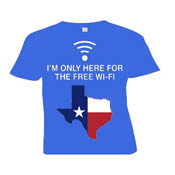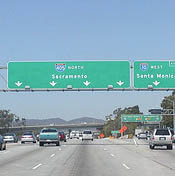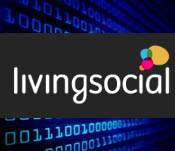By Paul Thomson :: 2:31 PM
 Apple’s music purchase and download service iTunes celebrates its tenth birthday today.
Apple’s music purchase and download service iTunes celebrates its tenth birthday today.
Hard to believe that an online service that is now so ubiquitous has really not been around all that long, in the grand scheme of the digital era.
When iTunes launched, the online music world was, to put it lightly, a bit of a mess. The space was fraught with illegal download sites, peer-to-peer file sharing networks, and had no easy way for users to quickly, easily, cheaply, and legally download song tracks.
Enter Apple and their portable music listening devices, iPods. Apple wanted there to be a way for iPod users to get songs onto their new gadgets with as little fuss as possible – the iTunes store was born.
iTunes launched on April 28, 2003, and five years later, in April of 2008, the service was America’s top retailer of music. The iTunes catalog today contains 26 million songs, but launched with only 200,000.
At launch time, all tracks cost 99 cents. It wasn’t until In 2009, that the three-tier pricing structure was introduced to iTunes, with songs selling for 69 cents, 99 cents, or $1.29.
Apple now sells many digital titles out of its stores – podcasts were added in 2005, movies in 2006, and the Apple App Store launched in 2008, along with iTunes U. All of these retail systems are built on top of the original iTunes model from ten years ago.
When iTunes hit the marketplace, it brought ease of use and inexpensive songs to users – and many who felt there were no other good alternatives flocked to Apple’s creation. Now, with the advent of music streaming sites like Pandora and Spotify, and their growing popularity with a new generation of digital consumers, it remains to be seen how Apple’s model will hold up going forward.
Still, such success and growth across ten years in a highly competitive, fast changing digital space is nothing to take lightly. So, happy birthday iTunes, and congratulations, Apple.
By Cynthia Herbert :: 10:56 PM
 Faced with competition from Google and its lightning fast broadband Internet service Google Fiber, Time Warner Cable is trying to get a jump on its impending competitor by offering free public WiFi in the city of Austin, Texas.
Faced with competition from Google and its lightning fast broadband Internet service Google Fiber, Time Warner Cable is trying to get a jump on its impending competitor by offering free public WiFi in the city of Austin, Texas.
“Google’s recent announcement encouraged us to deploy our network more aggressively now,” confessed Time Warner Cable’s digital communications director, Jeff Simmermon.
The company’s plan for its Austin WiFi hot-spot network is to make access free to all Time Warner customers who have an account at home at a level of “Standard Internet” or above. In addition to residential customers, the WiFi access will be available for Time Warner Business Class subscribers as well.
Non-customers can access the network for a fee of $2.95 per hour.
The Time Warner service is currently available in many areas of the city, and the company plans to stretch coverage throughout Austin in the coming months.
While being able to have access to free WiFi across the city may be a draw for some customers, Time Warner’s residential packages will still not have the super fast broadband speed that Google Fiber will provide. If the company is hoping to lure possible customers away from Google, it will likely need to do more than just blanket the city with wireless access points.
By Gilbert Falso :: 7:05 PM
 Elon Musk, the wealthy entrepreneur behind SpaceX and Tesla Motors is sick and tired of the traffic on the 405 freeway in metro Los Angeles.
Elon Musk, the wealthy entrepreneur behind SpaceX and Tesla Motors is sick and tired of the traffic on the 405 freeway in metro Los Angeles.
He’s so fed up with the bumper-to-bumper gridlock, that he’s offered up $50,000 to quicken the pace of construction currently in progress on the freeway to widen it and add lanes. Musk has said that he’s open to donating more of his personal funds to the project, to add workers to the 405 freeway construction, if it will hurry things along.
Musk told the Los Angeles Times that he would consider giving money to the city “as a contribution to the city and my own happiness. If it can actually make a difference, I would gladly contribute funds and ideas.”
“The 405 varies from bad to horrendous,” he told the Times. “It just seems people in Los Angeles are being tortured by this. I don’t know why they aren’t marching in the streets.”
Drivers in Los Angeles have been plagued by construction on the section of the freeway that connects West Los Angeles with the San Fernando Valley. The project is likely to take at least a year longer than initially planned, and could cost $100 million more than the original budget.
Susanna Watkins, a resident of Santa Monica who frequently navigates the 405 on a commute to Northridge, in the San Fernando Valley, was glad to hear of Musk’s offer to help. “If he has the ability to make a difference and make this nightmare go by faster, I’m all for it, and I’d be grateful to him,” she said. “Maybe they could name it the Musk Freeway?” she mused.
By Paul Thomson :: 4:16 PM
 Results of a recent study show that drivers who use a voice recognition application to compose their text messages are just as distracted as drivers who key in the text by hand.
Results of a recent study show that drivers who use a voice recognition application to compose their text messages are just as distracted as drivers who key in the text by hand.
The research was conducted by Texas A&M University for the Texas Transportation Institute. Their finding was that voice-to-text applications “do not increase driver safety compared to manual texting.â€
Physically using your device to send a text while driving is illegal in 39 states and the District of Columbia in the United States. However, according to a recent poll administered by the Automobile Association of America, 26% of drivers have admitted to sending a text while behind the wheel.
Texas researchers believe that the driving public assumes that using an app to text is better than using the device in your hand. Many drivers in the study told researchers that they felt safer using the voice recognition apps.
Data from federal agencies shows that in 2011, nearly 3,300 people died in accidents that were caused, in part, by distracted driving.
By Cynthia Herbert :: 7:24 PM
 Daily deals website LivingSocial has reported that it was the victim of a hacker attack, and customer data and passwords were compromised for about 50 million users of the service.
Daily deals website LivingSocial has reported that it was the victim of a hacker attack, and customer data and passwords were compromised for about 50 million users of the service.
Earlier today, the company began sending e-mails to subscribers who may have had their data accessed by the hackers. Customers were notified that they would need to log into the system and change their passwords.
“We recently experienced a cyber-attack on our computer systems that resulted in unauthorized access to some customer data from our servers,” said LivingSocial’s CEO Tim O’Shaughnessy in an e-mail. “We are actively working with law enforcement to investigate this issue.”
Hackers were not able to gain access to LivingSocial’s database of customer credit card numbers, but they did manage to get a hold of encrypted user passwords for the site. Customers who used the same password on LivingSocial as on other sites have been encouraged to change the password everywhere they use it.
“Although your LivingSocial password would be difficult to decode, we want to take every precaution to ensure that your account is secure, so we are expiring your old password and requesting that you create a new one,” O’Shaughnessy e-mail explained. The stolen passwords were not in plain text format, they were encrypted, so it would be difficult, but not impossible, for the hackers to decode the full plain text passwords.
LivingSocial will be turning its customer service telephone lines off at this time, and will only handle customer service issues via the web-based service center.